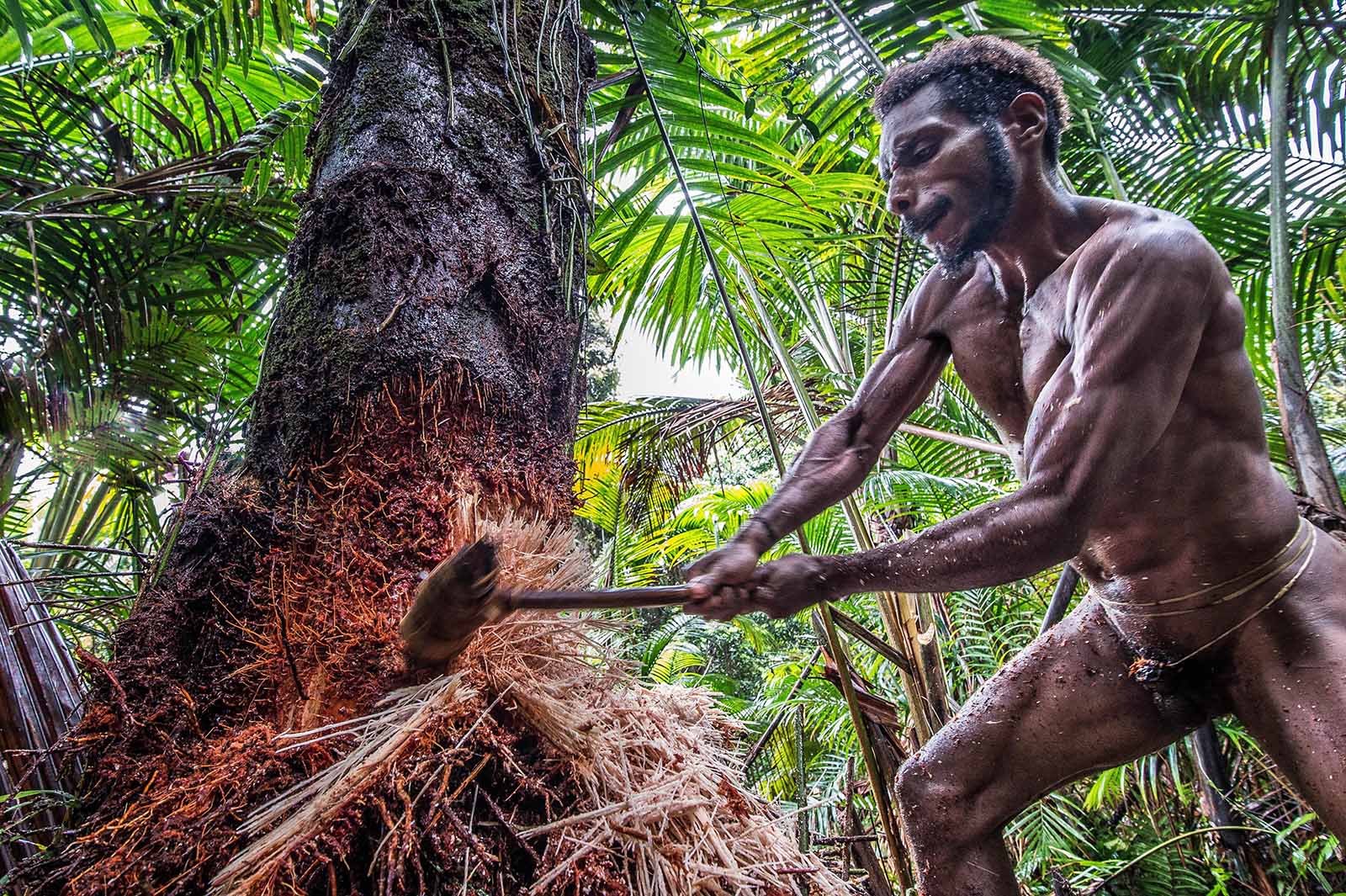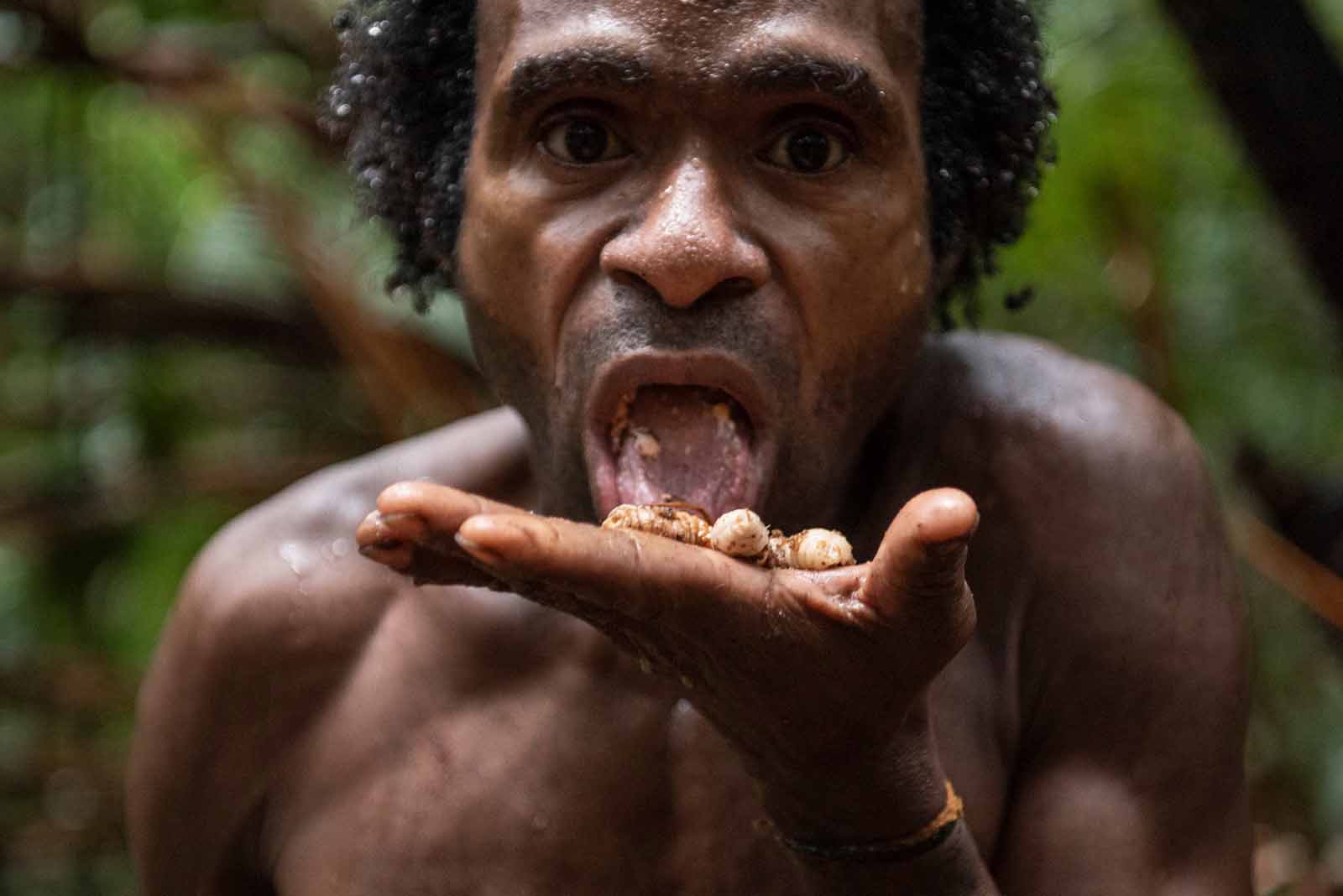
Did you know there are full tribes of cannibals living today?
It may seem hard to believe such an archaic tradition is still alive, but cannibalism is well and moving in today’s society. Obviously, there’s the criminals hankering for a taste of human flesh. But a more established society still has it in their traditions. Specifically, cannibal tribes.
In Papua, Indonesia, the Korowai tribe has lived in the jungle alongside the Ndeiram Kabur River. Up until the 1970’s, they didn’t even know anyone existed besides themselves. A hunter-gatherer society that does have horticulture elements, they don’t let any part of an animal go to waste.
But this rule doesn’t just apply to your traditional farm animals. Since they’re still unfamiliar with the outside world, it’s rumored that those who go to explore the tribe don’t come back alive. Instead, they’re the Korowais’ next meal.

A culture around little waste
Even in the way they farm, it’s clear the Korowai do not like letting things go to waste. Using a shifting cultivation style of farming, they use up the lands’ resources, then move on to let them grow back. Same applies to their other food. If someone hunts a pig, all of the pig is eaten, from its tail, to its rib meat, to even its eyeball.
While no one who has visited the Korowai has been able to see it in action, it’s claimed that similar rules apply to any human meat that comes their way. Some tribes that are still unaccustomed to westerners refer to white men as “ghost people” and fight them off, assuming they’re some form of witchcraft.
Since witchcraft motivates nearly all conflict with the Korowai people, it’s no surprise they may pick off anyone they believe is a witch. Of course, they’re not people who look a gift horse in the mouth. If they manage to get some meat, they’ll use it, even if it’s that of a perceived witch.

Where did the cannibalism claims start?
A lot of these claims stem from the 1961 disappearance of Michael Rockefeller, the son of then New York governor Nelson Rockefeller. While looking for artifacts from a different Papuain tribe, he disappeared, with his body never recovered. Once the Korowai were discovered, people tried to connect the dots between the two.
As people began to learn more about the Korowai people thanks to the Dutch, it became clear they truly feared magic more than anything else. Since they knew nothing of the outside world, they had nothing to fight off the diseases killing their residents at middle age. They weren’t caused by malaria or tuberculosis, but the work of khakhua in the minds of the Korowai.

As the khakhua infiltrates the body, they replace the person’s soul with fireplace ash until they become a shell of their former self. The only way to kill a man is with a magic arrow through his heart. As he dies, he’ll name the true khakhua who took over his body as well. That person is the one people will kill and feast upon.
They don’t see it as murder or cannibalism. They’re not eating a person, they’re eating a khakhua. Of course, the police who dare to trek out into the forest don’t see it that way, and some Korowai have been arrested for the act.

A declining in khakhua killings
In recent years, Korowai who live nearby the Dutch settlements have had a decrease in these witch hunting traditions, as they’ve not only started to question the act, but also fear the police will take them if they continue to murder. Those tribes further away from civilization have seen less of a decrease.
But there are still people in all tribes that practice with true faith. Some even act as khakhua killers within the tribe, willing to go after these witches for other members of the tribe who are too afraid to face them.
Cannibals lived throughout the Pacific southeast for years, with a large majority even continuing into the 19th century. Even as most have moved past this tradition, it’s clear that the Korowai cannibals are a big part of who they are as people. Their fear of witches to us may seem like a foreign version of the Salem Witch Trials, but everyone has to have their traditions.
—
If you’re fascinated by cannibals, real and fictional, sign up for our newsletter. We promise to send you only the most relevant news, quizzes, articles, and polls.



